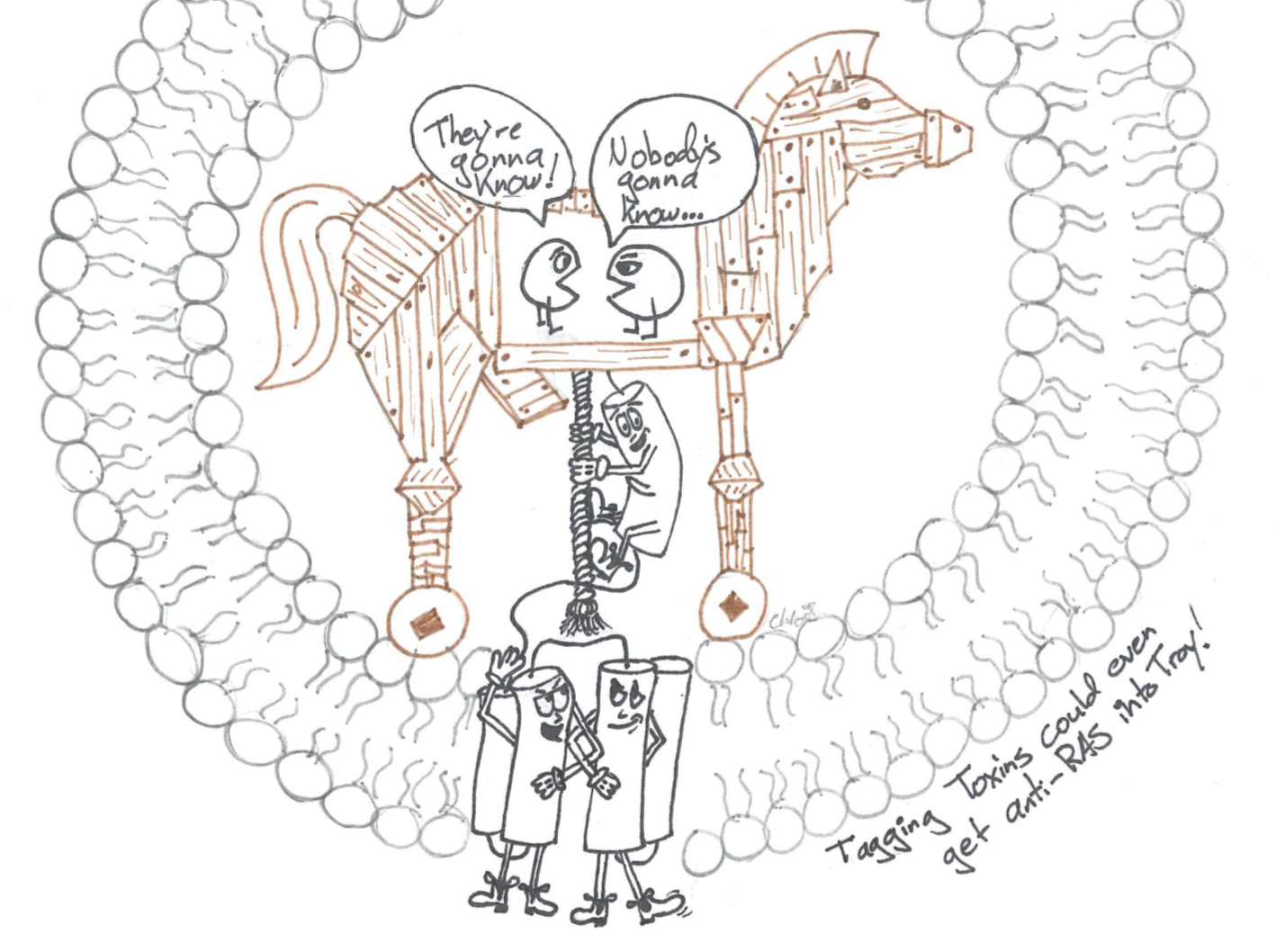BIOCHEMISTRY CARTOON SERIES: BACTERIAL TOXINS AS THE TROJAN HORSE IN BATTLING PANCREATIC CANCER

Written and illustrated by Chloe Mitchell
Researcher: Greg Beilhartz
Group: Melnyk Lab
Sometimes, even when the main target for treatment of a disease has been identified and there is a known inhibitor, the target is protected behind some sort of barrier. In this case, how do we open that gate? How does one drug the undruggable?
Pancreatic cancer remains one of the deadliest and most elusive cancers, as treatment options have not made any significant advances in the past 40 years. The vast majority of pancreatic cancer patients have tumours that are driven by hyperactive mutations in KRAS, a protein that causes unregulated growth and spread of cancer cells when it is stuck in that active state. Outside of the context of a cell, a bacterial protein called RRSP was found to cleave and thereby inactivate KRAS. The only thing standing between the oncogenic protein KRAS and an inhibitor like RRSP is the cell membrane, as proteins like RRSP are far too large to traverse the hydrophobic membrane without some help. Therefore, the Melnyk Lab devised a plan to use another type of bacterial protein – toxins – to package RRSP and deliver it specifically to cancer cells.
Toxins contain regions that are recognized by various cell surface receptors to allow the toxin to be taken up by endocytosis. Once inside the endosome, the toxin releases a transmembrane segment that forms a pore in the endosomal membrane; the pore is used as a delivery system to insert its toxic package into the cell cytoplasm. This pore can also break the barrier between an inhibitor in the extracellular environment and the key proteins required for cancer cell survival and proliferation in the intracellular environment. Exploiting this specific and potent delivery system, the Melnyk lab has concealed the RRSP protein in a toxin targeted toward cancer cells to deactivate KRAS. This promising research could finally allow us to target the Achilles heel of pancreatic cancer.
In this new ongoing series on Transcripts, Biochem PhD student Chloe Mitchell will share her original cartoons that depict research projects in our department. Each illustration will be accompanied by a written description of the research as well. The series continues here with a cartoon about work being done in the Melnyk Lab by Greg Beilhartz!
